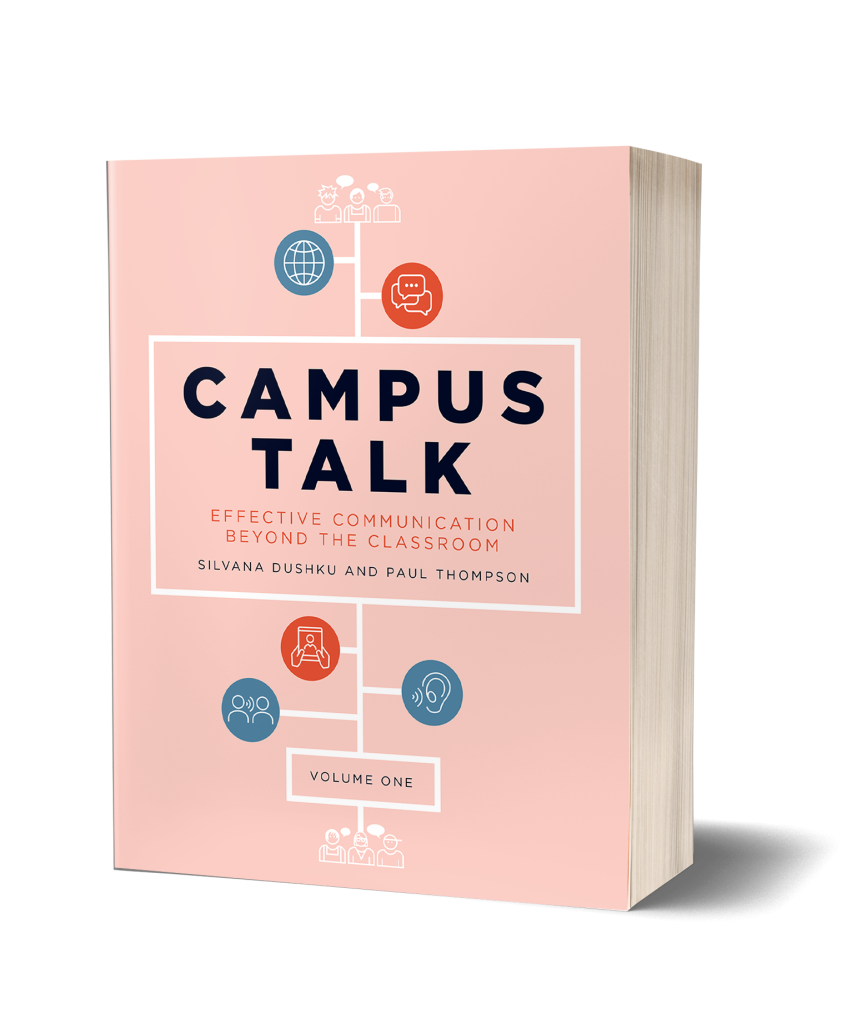Dushku, S., & Thompson, P. (2021). Campus Talk: Effective Communication Beyond the Classroom. Edinburgh University Press.

It is difficult to find a truly all-in-one textbook for ESL/EFL oral communication courses. For instructors who aim to teach authentic language through interactive and contextualized lessons, they often need to draw heavily on supplemental materials, combining content from multiple textbooks and scouring the internet for real-world language examples. Campus Talk: Effective Communication Beyond the Classroom (Dushku & Thompson, 2021) is a comprehensive two-volume textbook series that may offer these teachers a welcome change. This corpus-informed series addresses the research-identified oral communication needs of upper-intermediate and advanced English language learners in and outside of academic settings. The target audience includes undergraduate and graduate international students, international teaching assistants, and visiting scholars. I’ve found the content to work well for general adult ESL/EFL courses as well.
Each volume contains four instructional units divided into three topic- or skill-related parts. The units cover key speech acts (e.g., making requests, giving compliments, complaining, apologizing, storytelling) alongside conversation management strategies—an important feature of oral communication skills often overlooked. Through awareness-raising activities, detailed explanations, and engaging dialogues, students observe and practice authentic lexico-grammatical patterns of spoken English in context. Each unit includes clear learning goals, speaking- and listening-based interactional tasks, and a usage-informed vocabulary list. Each unit also culminates in a unit quiz, final speaking task, and self-assessment. Learners will have no lack of opportunities for practice as the online workbook provides even more activities and resources. Several units also contain corpus investigation tasks, where learners use online corpora to analyze the use of relevant language forms.
With Campus Talk, teachers have access to ample authentic and interactive materials to help their students become pragmatically aware and self-reflective communicators in the classroom and beyond.
Kelly Katherine Frantz
Teachers College, Columbia University
[email protected]





